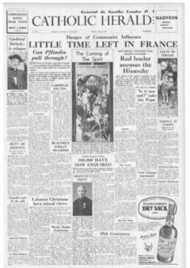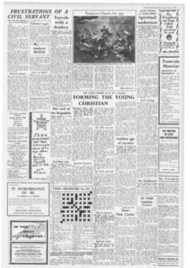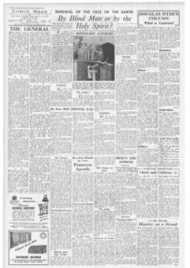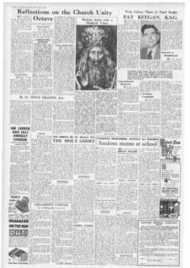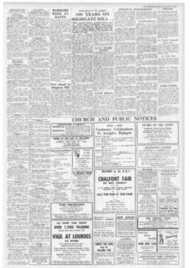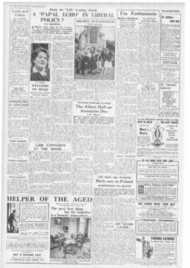Page 6, 23rd May 1958
Page 6
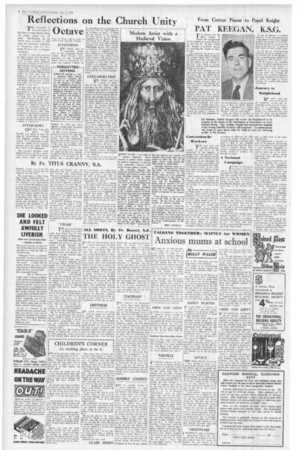
Report an error
Noticed an error on this page?If you've noticed an error in this article please click here to report it.
Tags
Share
Related articles
'tireless Champion Of The Laity Fights On
Conversion By Workers
P111111c0 9 S • •
In A Few Words By Jotter
I Catholic Profiles : I 091
PAT KEEGAN, K.S.G.
I T is unusual for the Holy Father to award the Knighthood of St. Gregory to a man when he is still only 42. In fact I think Pat Keegan is probably unique in receiving the award so early in life. The reason for the award is also unusual. It comes more commonly to a public figure after a lifetime of labour for the Catholic cause in the affairs of the nation, or devoted work within a national Catholic society, hard persevering labour in one place. Pat has been occupied for the last eleven years in a different sort of labour. He was seldom to be found at home. He was a nomad, travelling all over the world with Mgr. Joseph Cardijn, often in Rome, in some years having several individual audiences with the Holy Father. The latter were not a matter of courteous recognitions of the national status of some revered figure. No one but a few Catholics in England had heard of Pat. His visits to Rome. his familiarity with not a few Cardinals. and other officials of the Church there were a sign of a quickened approach by the Church to the business of converting the world, a change. for which Pius XI had prepared the way. The headquarters of the movement were at Bob and Molly Walsh's House of Hospitality in Wigan; the back page of " The Catholic Worker " was the News Sheet. After the move to London in 1939, Pat operated from a quick It was an attempt to establish branches of the movement among young people everywhere, bringing to them the message of Christianit3 that the Church was set up for the good of all men, for the good of their bodies as well as their souls.
It was not an anti-Communist campaign. It was an attempt to fill the vacuum left by the disappearance of pre-Christian religions and superstitions, with Christian hope. to fill the vacuum left alongside modern secularist materialism with a faith routed in the certainty of the spiritual, a faith which was manifest in its practical concern for the food. the clothing, the housing, the working conditions, the social conditions, the status of the family, the rights of citizens amongst the poorest paid people everywhere.
'Journey to Knighthood
WE don't need any turns of rhetoric to see something moving and encouraging in this story of the progress of a Lancashire cotton piecer to a Papal Knight. Pat's mother was Lancashire born and bred; his father was an Irishman and a miner. Their qualities can be
blog comments powered by Disqus


